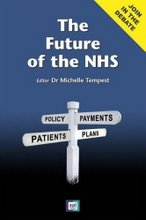It is well known that advancements in medicine bring challenges to ethical and legal boundaries as to how to apply the new medical knowledge. This week the High Court ruled that a woman in persistent vegetative state (pvs) could be given an experimental treatment, contrary to her family’s wishes. The 53 year old woman had been diagnosed with pvs after she suffered a brain haemorrhage during a holiday in August 2003. The experimental treatment involved the drug zolpidem - a frequently prescribed medication for insomnia. There are a small number of case reports with the unexpected finding that this medication has brought people round from pvs for a few hours, just 20 minutes after administration. One theory is that if pvs victims awake, even temporarily, they can be asked what further care they would wish.
The High Court decided to give the go-ahead for a zolpidem trial, believing that it may offer a glimmer of hope for recovery. This was despite her family being concerned that if she awoke she may be very upset upon learning about her condition. Her family’s preferred option was for her not to undergo any experimental treatment. Unfortunately, in her case, zolpidem did not increase her responsiveness, in fact, it seemed that it had its normal intended effect causing her to become even more sleepy. Following this report the Dignity in Dying chief executive Deborah Annetts said the decision was deeply troubling as "the human rights of the woman at the centre of this case are being ignored, and she is effectively being treated as a guinea pig."
The High Court decided to give the go-ahead for a zolpidem trial, believing that it may offer a glimmer of hope for recovery. This was despite her family being concerned that if she awoke she may be very upset upon learning about her condition. Her family’s preferred option was for her not to undergo any experimental treatment. Unfortunately, in her case, zolpidem did not increase her responsiveness, in fact, it seemed that it had its normal intended effect causing her to become even more sleepy. Following this report the Dignity in Dying chief executive Deborah Annetts said the decision was deeply troubling as "the human rights of the woman at the centre of this case are being ignored, and she is effectively being treated as a guinea pig."
Coincidentally, this week the British Medical Journal (Jonathan Lomas BMJ 20/01/07) discussed the need for the latest research to be made more accessible and more understandable. “In the case of research, accumulating sequential processes reveal…often haphazard cycles of discovery and validation.” To aid communication the idea of ‘knowledge brokers’ was mooted.
With research becoming ever more diverse, it is perhaps increasingly important to be aware of new advancements and consequences before applying new techniques to new situations. In the modern age of an increasingly democratic media, the often mysterious world of research arguably needs to respond with greater transparency. The proposal for knowledge brokers is therefore a welcome one, and if implemented thoroughly it could have wide-ranging effects. Not only would it help to bring together the various strands of learning and research into a more cohesive, interdependent body, it could also be used to good practical effect on a day-to-day basis.
Cases such as the one discussed above, highlight the need for a comprehensive review of all the literature and research available. 'Knowledge brokers' may have been extremely well-placed not only to review the research material but also to explain it to the health providers, family and the court.





2 comments:
Hi Michelle, your blog is fantastic with high quality information. Also thank you for visiting my Free Life Coaching Blog: http://coachingmantra.blogspot.com
I would provide a link form my homepage soon.
All the best and God bless
Thanks Debojit.
Post a Comment